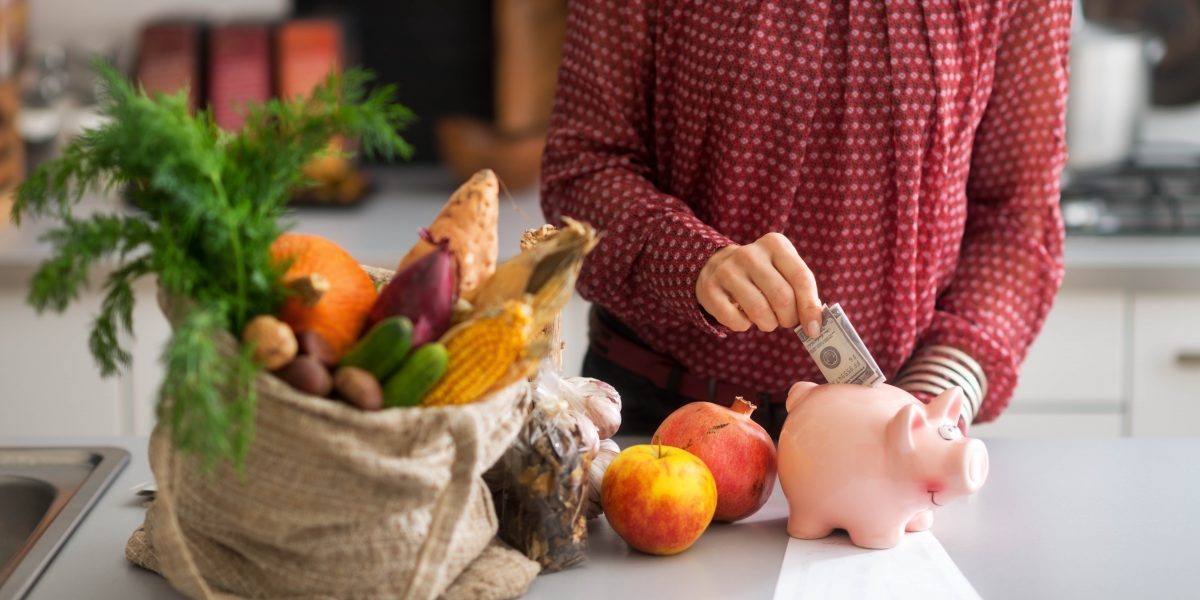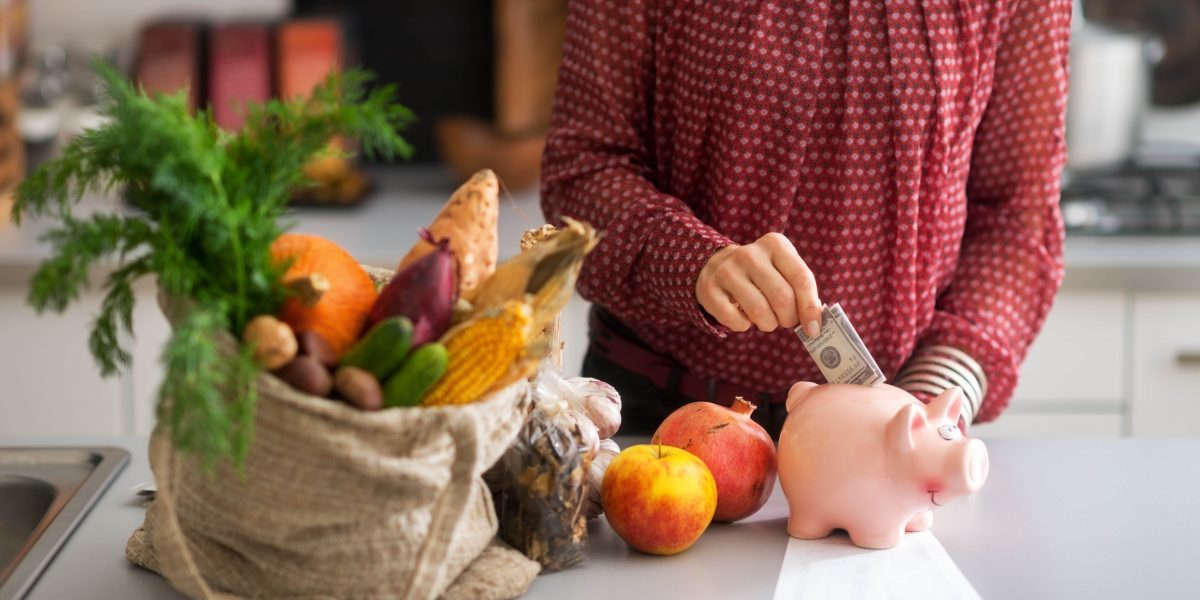
Even if you try your best to be frugal when it comes to food costs, your spending can very quickly add up.
This is especially true with the recent uptick of food delivery services that make take-out from nearly any restaurant as easy as a few taps on your phone and a 30-minute wait from the comfort of your couch.
If you’re finding that your food budget seems outsized, there are a few simple habits and methods that you can take to cut down on cost.
Here are five food hacks for saving money on your food expenses.

1. Use What You Have Before you Buy More
It might be tempting to go to the grocery store every week, partially out of habit, but before you go out and buy new groceries, make sure that you’ve actually used what you have on hand first.
This has more than one benefit.
You won’t be bypassing foods that would otherwise go bad from sitting in your fridge or pantry for too long, and you’ll also be able to find creative ways to use each and every food for meals, which will come in handy for recipe ideas in the future.
2. Cook Big Meals & Use Your Freezer
Getting into the habit of cooking big, nutritious meals that you can turn into several meals throughout the week can lead to big savings.
Turn that Sunday chicken dinner into chicken tacos for lunch the next day.
Also, don’t neglect your freezer. Preserve any items that you might not use within 3 days of cooking by freezing them. You can always defrost that meal and reheat it later on, so don’t just let it go to waste.
3. Build a Budget & Stick to It
Create a realistic budget range for your weekly or bi-weekly grocery trip, and stick to it.
Chances are that you aren’t going to end up spending exactly the same amount of money every time you go to the grocery store, so having a bit of flexibility can be useful.
Try to create a median budget, and then give yourself a ten dollar “flex” range. If you spend less than that median number, that’s great, and if you need to go a little over because you needed to grab a few extra things that week, that’s okay too.
Just try to limit going way over your budget on impulse buys.
4. Don’t Grocery Shop While Hungry
Speaking of impulse buys, one of the golden rules when it comes to grocery shopping is to never shop when you’re hungry.
When you’re in a hunger daze, you’re much more likely to make purchase decisions on an impulse, and not with the foresight of your actual need for that food and how it fits into your budget.
Make sure that you aren’t shopping on an empty stomach, otherwise you might find yourself with a fridge and pantry full of food that will hardly last the week.
5. Save Takeout (& Eating Out) For Special Occasions
As we mentioned before, access to pricey restaurant food is more prevalent than ever, and it can be easy to fall into the trap of consistently ordering food which can add up fast.
Fifteen dollars in takeout will generally get you, at most, half of the food that you can get by cooking yourself, and frankly it’s usually even less than that. The same goes for eating at restaurants.
While there’s nothing wrong with treating yourself from time to time, if you get into the habit of consistently ordering in or eating out, it won’t be long before you see your food budget ballooning well past what it should be.
If you tend to buy food online, try buying groceries online instead of food delivery.
By doing this instead, you can turn a financially negative tendency into a financially positive one. Plus, buying groceries online can be more convenient (and more money savvy) than buying groceries in person.
Accounts to Help You Save
With all these savings opportunities, you’ll need somewhere to keep your money.
That’s where an HRCCU savings account comes in handy.
Whether you’re looking to start a rainy day fund, or want to start saving for a big purchase sometime down the road, we have a number of different savings accounts to protect your money, no matter how large or small the amount.
Looking for more savings tips? Read our post, “How to Start Saving When You’ve Saved Nothing” for a few more pointers on saving outside of the grocery market.

